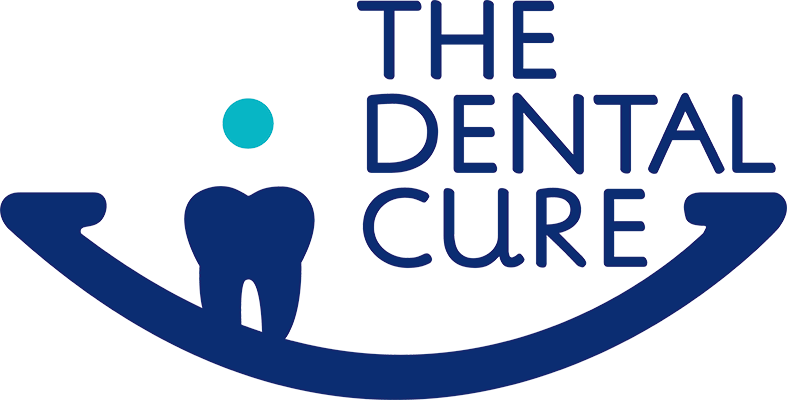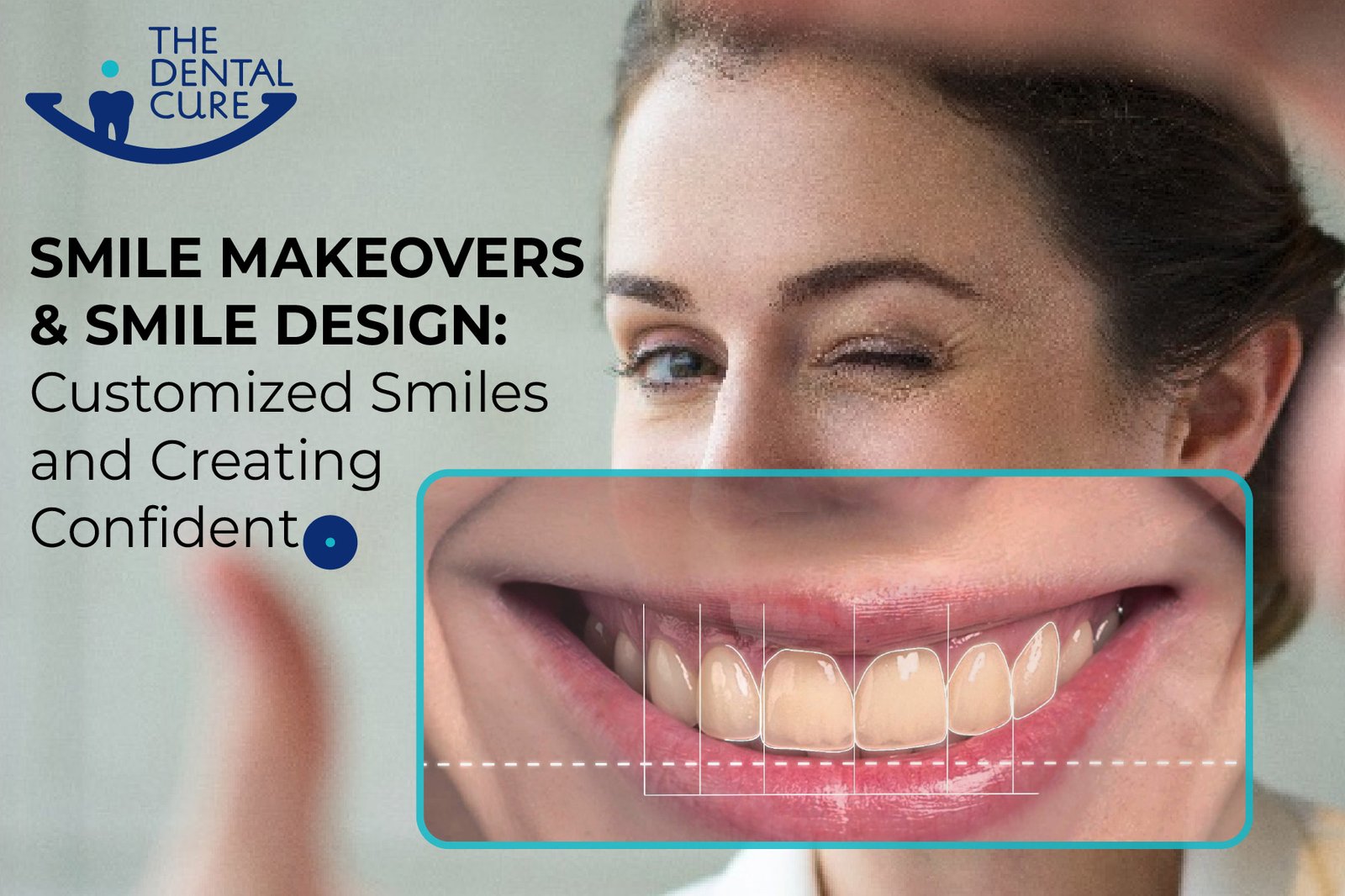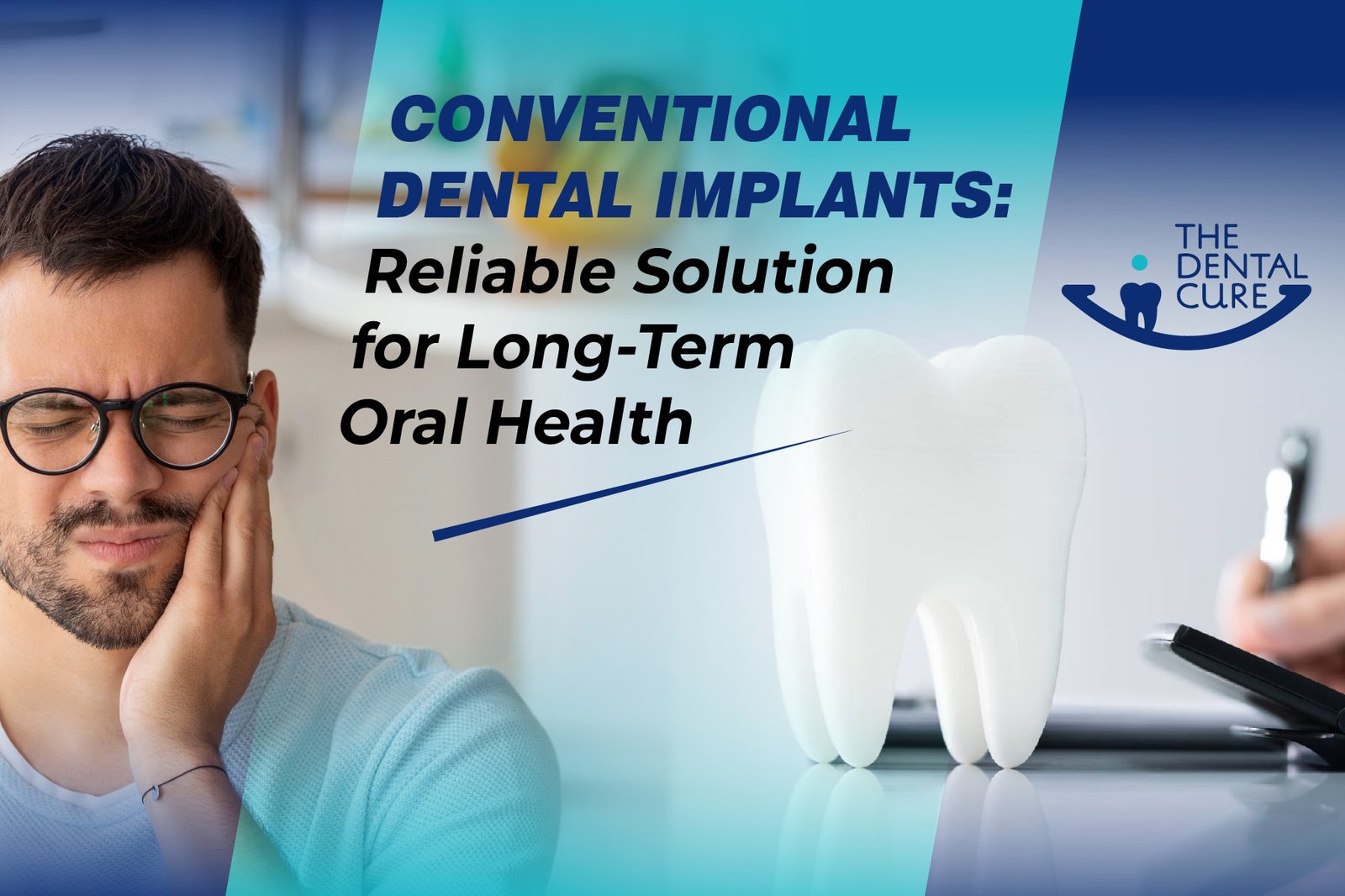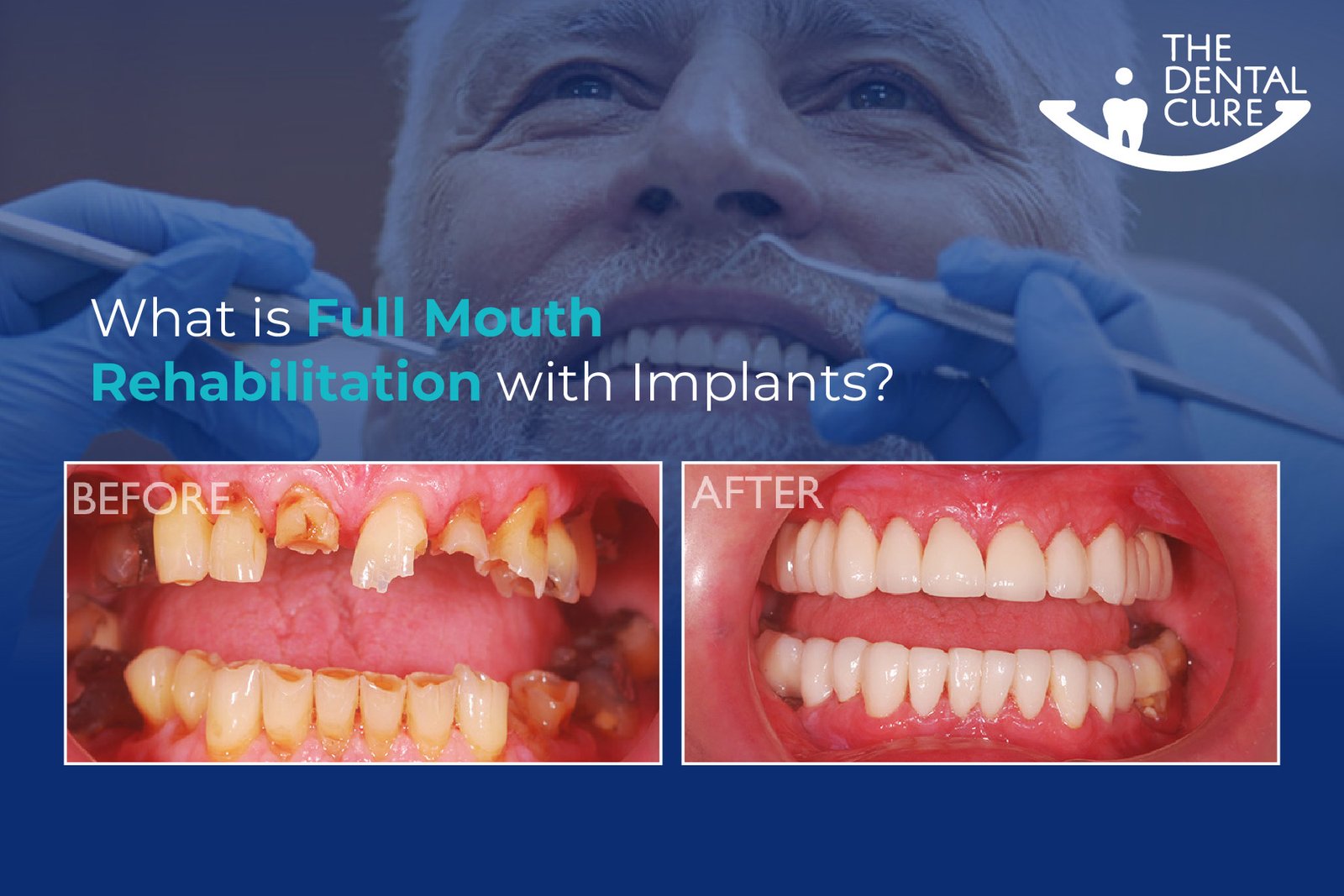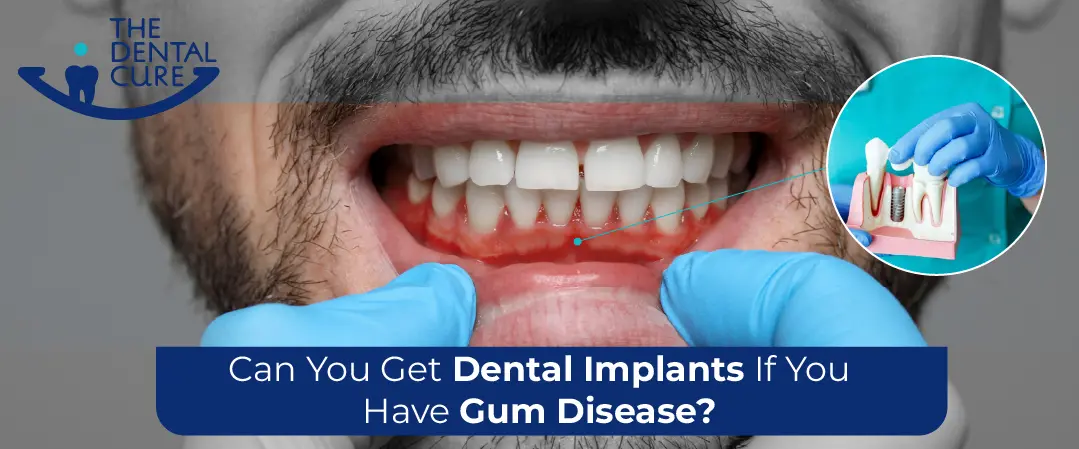
For many people, dental implants are a life-changing solution for missing teeth, restoring both function and aesthetics. However, if you have gum disease, you might be wondering:
- Are dental implants an option for me?
- Will my gum disease affect implant success?
At The Dental Cure, Gurgaon, we frequently address these concerns. The good news is that having gum disease doesn’t automatically mean you can’t get dental implants, but proper treatment and careful planning are essential.
Let’s explore how gum disease affects dental implants, the risks involved and how you can ensure a successful implant procedure.
What is Periodontitis?
Periodontitis is a serious gum infection that damages the soft tissue and, if left untreated, can destroy the bone that supports your teeth. It typically begins as gingivitis, a mild form of gum disease characterized by redness, swelling, and bleeding gums. When not managed in time, gingivitis can progress to periodontitis, leading to gum recession, tooth mobility, and even tooth loss.
The primary cause of periodontitis is poor oral hygiene. Plaque — a sticky film of bacteria — accumulates on the teeth and along the gum line. If not removed by regular brushing and professional cleaning, it hardens into tartar, which can lead to inflammation and infection in the gums.
At The Dental Cure, periodontitis is managed with precision and care. Our periodontist performs deep scaling and root planing to remove plaque and tartar from deep periodontal pockets. If needed, periodontal flap surgery is performed to gain better access to the roots and underlying bone, promoting healing and regeneration.
Common Signs of Gum Problems
Early detection of gum issues is essential to prevent permanent damage. Here are some warning signs that may indicate gum disease:
- Swollen, red, or tender gums
- Bleeding while brushing or flossing
- Persistent bad breath
- Gum recession (teeth appearing longer)
- Formation of deep pockets between teeth and gums
- Loose or shifting teeth
- Pain while chewing
If you’re experiencing any of these symptoms, it’s crucial to seek evaluation by a periodontist. Timely intervention can stop the progression of gum disease and help retain your natural teeth.
How to Do Implants in Gum Diseases?
Placing implants in patients with gum disease (periodontitis) needs careful planning and treatment. At The Dental Cure, we follow a step-by-step process to ensure long-term success:
1. Treating the Gum Infection
We first remove all infection using deep cleaning (scaling and root planing). If needed, gum surgery (flap surgery) is done to clean deeper areas. Implants are only placed after the gums are healthy.
2. 3D Implant Planning with CBCT
We use CBCT scans (3D imaging) to check bone quality, height, and nearby nerves. This helps us plan the exact spot and angle for safe implant placement.
3. Ensuring Healthy Gum Tissue
A thick layer of healthy gum tissue is important to protect implants. If there isn’t enough, we may do a soft tissue graft.
4. Flapless & Guided Implant Surgery
In some cases, we place implants without cutting the gum (flapless technique) using a custom surgical guide. This makes the process faster and more comfortable.
5. Bone Grafting (If Needed)
If gum disease has caused bone loss, we rebuild it using:
- Bone grafts (Bio-Oss)
- Biomembranes (Nobel Biocare Creos)
These help the bone heal and support the implant.
6. Aftercare & Maintenance
Regular check-ups and cleanings are essential. We monitor for any signs of infection and guide you on how to keep your implants healthy for years.
Can You Get Dental Implants If You Have Gum Disease?
Yes, but your gum disease must be treated first before implants can be placed.
Gum disease (periodontitis) is an infection that damages the gum tissue and underlying bone. Since dental implants rely on a strong and healthy jawbone for support, active gum disease can increase the risk of implant failure.
That’s why your dentist will first ensure your gums are infection-free before moving forward with implants.
Understanding Peri-Implant Diseases
Even after successful implant placement, if oral hygiene is neglected, bacteria can accumulate around implants and cause complications. The two primary conditions that affect implants are:
1. Peri-Implant Mucositis
- A mild gum infection around the implant.
- It is reversible with early intervention and improved oral care.
2. Peri-Implantitis
- A severe infection affecting both the gums and the bone surrounding the implant.
- It can lead to bone loss and implant failure if left untreated.
This is why excellent oral hygiene and routine dental visits are crucial to maintaining healthy implants.
How Gum Disease Affects Implant Success
If you have untreated gum disease, you may face the following risks when getting dental implants:
- Bone Loss – Periodontitis erodes the jawbone, which can make implant placement difficult. A bone graft may be required in such cases.
- Weakened Gum Tissue – Inflamed or receding gums may struggle to support an implant properly.
- Higher Infection Risk – If gum disease bacteria remain in your mouth, they could cause complications around the implant.
While gum disease can pose challenges, it does not mean you can’t get implants—it simply requires additional precautions.
How to Get Dental Implants If You Have Gum Disease
If you have gum disease but want dental implants, the following steps will help ensure a successful outcome:
Step 1: Treat Gum Disease First
Your dentist will provide professional deep cleaning, scaling and root planing to remove bacteria and restore gum health.
Step 2: Check Bone Density & Consider Bone Grafting
If periodontitis has caused bone loss, a bone graft may be necessary to strengthen the jawbone before implant placement.
Step 3: Use Special Implant Surfaces for Better Healing
Advanced implants with specialized surfaces like SLActive or TiUnite promote faster integration and healing.
Step 4: Commit to Regular Check-Ups & Oral Care
Gum disease patients require frequent dental visits after implant placement to monitor gum health and prevent reinfection.
At The Dental Cure, Gurgaon, we create personalized treatment plans for gum disease patients who need implants, ensuring long-term success and stability.
How to Prevent Gum Disease Around Implants
To keep your implants healthy and avoid complications, follow these essential care tips:
Maintain Excellent Oral Hygiene
- Brush twice daily with a soft-bristle toothbrush.
- Floss around the implant to remove trapped food and bacteria.
- Use an antibacterial mouthwash to keep harmful microbes in check.
Schedule Regular Dental Check-ups
- Visit your dentist every 6 months (or more frequently if recommended).
- Get professional cleanings to prevent bacterial buildup.
Quit Smoking
- Smoking significantly increases the risk of implant failure by reducing blood flow to the gums.
- If quitting completely isn’t possible, cutting down can still lower risks.
Control Underlying Health Conditions
- If you have diabetes, keep your blood sugar levels stable to support healing.
- Eat a nutrient-rich diet to strengthen gum and bone health.
Choose an Experienced Implant Specialist
- Proper implant placement is key to avoiding complications.
At The Dental Cure, Gurgaon, we assess every patient thoroughly to ensure the best outcomes.
Signs of Gum Infection Around Implants – When to See a Dentist
Watch out for early warning signs of gum disease around implants:
✔️ Bleeding gums when brushing or flossing
✔️ Red or swollen gums near the implant
✔️ Bad breath or a bad taste in the mouth
✔️ Pain or tenderness around the implant
✔️ Pus or discharge from the gums
✔️ Loose implant or difficulty chewing
If you experience any of these symptoms, visit your dentist immediately. Early treatment can save your implant and prevent further issues.
Final Verdict: Can People with Gum Disease Get Dental Implants?
- Yes, but gum disease must be treated first.
- Bone grafting may be needed if bone loss has occurred.
- Regular maintenance is essential for implant longevity.
Having gum disease doesn’t mean you can’t enjoy the benefits of dental implants! With proper treatment and expert care, you can achieve a strong, healthy and long-lasting smile.
At The Dental Cure, Gurgaon, we specialize in dental implants for patients with a history of gum disease, ensuring they receive safe and effective treatment.
📞 Book Your Consultation Today – Call +91-9990171656
📍 Visit Us – Sector 57 & DLF Phase 2, Gurgaon, India
FAQs –
1. Can I get dental implants if I have gum disease?
Active gum disease (periodontitis) must be treated first before placing implants to ensure long-term success.
2. Can implants get infected like natural teeth?
Yes, implants can develop peri-implantitis, an infection similar to gum disease, leading to bone loss.
3. What are the signs of infection around a dental implant?
Redness, swelling, bleeding gums, bad taste, pus, or pain around the implant.
4. How do I prevent gum disease after getting implants?
Good oral hygiene, regular dental visits, and avoiding smoking are key.
5. What happens if I have gum disease after an implant is placed?
Early intervention (deep cleaning, antibiotics, laser therapy) can help, but advanced cases may require surgical intervention.
